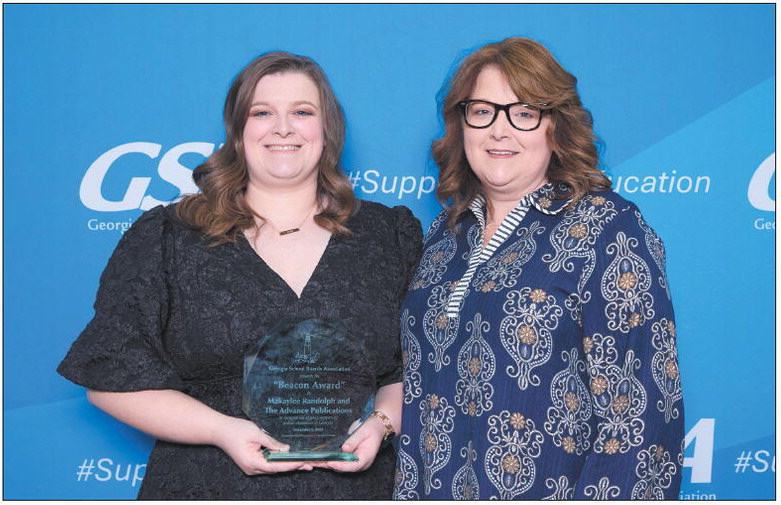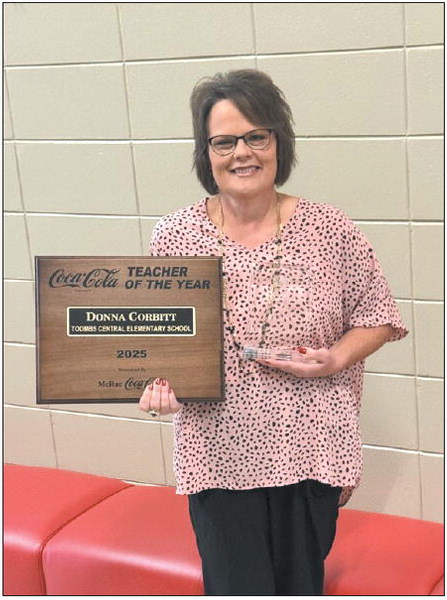Grant Provides Telemedicine, Distance Learning Network for Wheeler County
A $607,900 federal rural development grant will enable the Wheeler County School System to build a telemedicine and distance learning network that will benefit not only local students, but ultimately the entire community. As one of the poorest counties in Georgia, Wheeler County’s high poverty rate and remote location pose challenges for its citizens who seek opportunities to improve their health, further their education, and improve their quality of life. Substance abuse is on the rise and its effects are evident in the increasing number of students with special needs entering Wheeler County Schools.
This network will facilitate mental health services and substance abuse education and counseling to 900 Wheeler County students, as well as to inmates and former inmates through the Wheeler County Sheriff’s Office. Although the predominate focus of this grant will be on telemedicine, distance learning activities will provide equitable access to high-quality education and mental health services, improved school readiness, and increased awareness of career and education opportunities for all Wheeler County students. The grant awarded to Wheeler County is one of four grants bestowed in Georgia as part of a $50 million investment in 105 rural distance learning and telemedicine projects in 37 states and Puerto Rico. These awards are being funded through U.S. Department of Agriculture’s Distance Learning and Telemedicine (DLT) program that helps fund distance learning and telemedicine services in rural areas to increase access to education, training and health care resources that are otherwise limited or continued from page
unavailable. In Wheeler County, the grant will facilitate the Wheeler County School District’s “Brighter Horizons Project,” which extends from October 2021 to September 2024. The grant provides telecommunications equipment for placement in several strategic locations in the county, including the Pre-K, elementary, middle/high school, and alternative classrooms, school counselors’ offices, two local child care centers, Community Mental Health, the Wheeler County Sheriff’s Office, and at the Wheeler County Chamber of Commerce which sponsors programs for youth.
This project has an objective of addressing the needs of the county’s most at-risk populations, from early childhood to adulthood, said Wheeler County Schools Superintendent Suzanne Couey. The challenges on which the program focuses range from early literacy to substance use disorder counseling and education. Pre-School Readiness
Among the most vulnerable of the county’s residents are very young children. Couey cited data gathered through the “Kids Count” database that indicates some alarming trends. The database reveals that 70.5% of eligible Wheeler County children attend the Wheeler County Pre-K program, which is housed in the Wheeler County Elementary School (WCES). Over the last few years, Pre-K teachers have noted a decrease in entering students’ school readiness, specifically related to fine motor skills and communication and social skills. The “Kids Count” database also reveals that 72.1% of children ages 3 and 4, who are too young to attend Pre-K at WCES, do not attend preschool. The grant application targeted the need “to develop early literacy, numeracy, and socialization in these children who cannot hold a crayon when they enter Pre-K but can navigate a smart phone or tablet with ease.” Perhaps the most concerning issue is that “school district staff have recognized a growing trend in the number of elementary students found eligible for special education services. “The increase is alarming and illustrates the dire need for early learning support (and the need for parental substance abuse counseling and treatment),” the grant application stated. In school year 2017, 5 students were evaluated and found eligible for Special Education services during the course of the year; in school year 2021, 33 students were evaluated and found eligible. Couey explained that “The Brighter Horizons” project will address the critical issues connected with young children by providing distance learning equipment for Wheeler County’s two child care centers (Head Start and a private center) with a connection to WCES Pre-K classrooms. Child care centers will be able to “tune in” to Pre-K classes led by highly-qualified instructors at a set time each day to join in early learning activities.
Pre-K teachers will schedule “office hours,” at a time during which they will provide tips and suggestions for parents to support early literacy and numeracy activities at home. WCES will advertise the links and schedules for these sessions so that all younger children and parents in the county will be able to participate, not just those enrolled in daycare centers, Couey explained.
She added, these sessions will increase parental awareness of the importance of reading to children, talking with children, and limiting screen time. Teachers will provide research-based strategies for early literacy and numeracy development and establish relationships with future Pre-K parents. The arrangement will also facilitate relationships between the WCES Pre-K staff and childcare centers to support Wheeler County children.
Other Critical Areas of Need
Also outlined in the grant application were these critical areas of need: Mental health servic es and substance abuse education and counseling for Wheeler County students Mental health ser vices and opioid and substance use disorder counseling for inmates and former inmates at the Wheeler County Sheriff’s Office/Jail Equitable, quality in struction for at-risk middle and high school alternative program students.
Expansion of WCSS students’ knowledge of career and educational opportunities to improve the education and economic status of Wheeler County and its citizens Mental Health Services and Substance Abuse Prevention Because of Wheeler County’s remote location, immediate access to mental health services is challenging and often impossible. The grant application noted “school counselors attend to students in crisis while waiting for family members (or EMS) to arrive and transport students to facilities 30 of more miles away. The COVID crisis has only exacerbated the need for counseling and mental health services.”
By placing telecommunications equipment in school counselors’ offices, Wheeler students will have access to consistent mental health services and substance abuse counseling provided by licensed professionals at Road to Success Counseling in Mount Vernon and Community Mental Health through Community Service Board of Middle Georgia. School counselors will also have the capability of immediate access to mental health specialists for crises and will be able to provide “just in time” coordination of services for students in emergent situations.
Tel eco n f e renci n g equipment in classrooms and media centers will also provide opportunities for substance abuse education in small groups or larger contexts provided by mental health and law enforcement experts, Couey explained.
Virtually Unlimited Possibilities
Connecting Wheeler County with remote locations will enable virtual field trips, virtual college tours, and small group educational sessions on topics such as substance abuse prevention, Internet safety, bullying and suicide prevention. Equipment will also facilitate small and large group student sessions with successful Wheeler County School alumni who can mentor students and explain their path to successful careers across the nation. Partnership with the Chamber of Commerce will promote the development of the Chamber’s Youth Leadership Program and student awareness of career opportunities in the county and beyond. The equipment will also expand access to dual enrollment classes and provide access for Wheeler’s adults to attend technical college.
“The equipment has applications beyond the school system. It can be used by the Sheriff’s Office for remote training of our county’s first responders and the Chamber can use the equipment for teleconferencing economic development forums, for instance. Our primary focus is our students, but the entire county will benefit from this grant,” Couey said. The Wheeler County grant is the largest amount received in the state. Also receiving grants are Crisp County Regional Hospital, $56,574; the Foothills Education Center in Northeast Georgia, $86,475; and New Horizons Community Service Board $51,230 in West Central Georgia.




